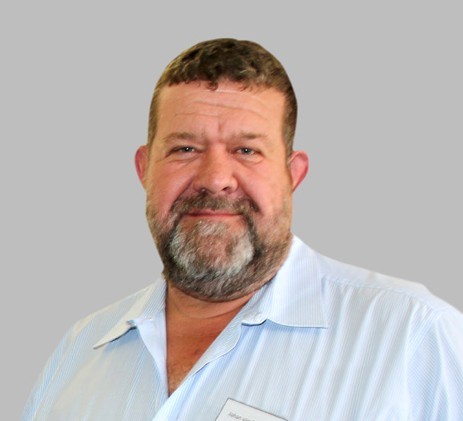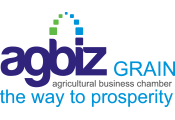
Articles & Insights
Looking to the future of grain handling and storage

I was born in Boksburg, Gauteng, in 1975. Two years later, my parents and I moved to our family farm, Pleasant View, near Villiers. There, my father continued the family tradition of grain and livestock farming. He later added a dairy operation, and I was considered a ‘milkman’. My passion for agriculture began to take root during the severe drought of the 1980s.
My first grain-related job was as a learner grain silo assistant at VKB’s grain silo in Villiers. Over the years, I worked my way through the ranks, gaining experience at organisations such as SOK, OTK, AFGRI, GrainCo, BKB GrainCo, and OVK, before eventually returning to VKB. Along the way, I earned certifications in grain grading, fumigation, and silo operations, and completed a number of management short courses. More importantly, I had the privilege of learning from some of the most respected professionals in the industry.
Throughout my career, I’ve had the opportunity to pioneer several ‘firsts’ in South Africa’s grain handling and storage landscape. In 2002, I installed and operated the country’s largest grain dryer at the time. Two years later, I established and managed Africa’s first Australian-style grain bunker using silo bag storage for commercial purposes. From 2014 to 2015, I established South Africa’s first high-density lucerne press.
Today, I serve as executive head of VKB Grain Services and am currently pursuing a Bachelor of Management Leadership (BML) degree. This year, I was honoured to be elected president of the Grain Handling Organisation of Southern Africa (Gosa). Above all, I’m a proud husband and father of two – my greatest achievement.
Technology and the impact of AI
Technological advancements in grain handling and storage are expected to become more affordable, safer, and more efficient. This technology should be geared towards improving grain and oilseed traceability, and enhancing food safety. It also provides valuable tools for studying the long-term impacts of genetically modified organisms and limiting the spread of mycotoxins.
Artificial intelligence (AI) holds promising potential, particularly when integrated with blockchain technology. Blockchain allows for data recording across multiple platforms, delivering accurate and actionable information. This can support more informed decision-making. AI also shows great potential in improving the grading of grains and oilseeds, helping ensure compliance with stringent food safety standards.
However, caution is warranted. If a blockchain is compromised, false data could corrupt the entire system. Over-reliance on AI may also be a hindrance rather than a helper.
The vital role of wheat
Wheat remains a critical staple in South Africa, yet we are a net importer of it. This reliance on global markets exposes the country to significant risk, especially in an increasingly unstable geopolitical and economic climate. Local markets are further strained by the government’s slow response in announcing and implementing import tariffs for wheat.
Cultivar classification
Certain cultivars are designed for specific applications – not only in production spaces, but also during gritting in production processes. By selecting cultivars with strong disease resistance, producers can reduce pesticide use, improve yields, and contribute to long-term food security.
A final thought
My passion lies with the next generation. We must make the grain handling and storage industry attractive. A strong, long-term relationship between new talent and the industry will benefit all stakeholders and help feed the nation for generations to come.
To achieve this, we must continually hold ourselves to the highest standards. A willingness to acknowledge our mistakes makes it easier to find sustainable solutions, and build a more resilient and innovative industry and supply chain.
By Johan van Rensburg, VKB Grain Services (Johan van Rensburg, executive head at VKB Grain Services and president of the Grain Handling Organisation of South Africa.)
Read this article and more in The August 2025 issue of Agbiz Grain Quarterly
